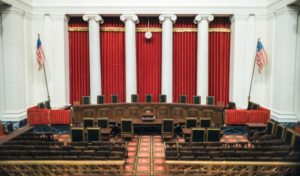
Experts consider the value of mass comment campaigns during notice-and-comment rulemaking.
As technology improves, public participation in the notice-and-comment rulemaking process becomes more accessible. Yet this participation can come with an administrative cost to unprepared regulatory agencies that are obligated to review and consider each substantively different comment.
The Administrative Conference of the United States (ACUS) recently issued a recommendation for how administrative agencies can manage the submission of “mass comments”—that is, comments submitted in large volumes during the notice-and-comment period of the rulemaking process. Although the ACUS recommendation addressed issues for managing mass comments, it did not address broader questions about how, if at all, mass comment campaigns should factor into agencies’ substantive decision-making about rulemaking.
The Regulatory Review invited experts who contributed to and followed the development of the recent ACUS recommendation to explore normative questions related to mass comments. This series seeks to explicate the value of and precise role for mass comments, how the public should engage in the rulemaking process, and how agencies might respond to the phenomena of mass comment campaigns.
This series includes contributions from: Reeve T. Bull, ACUS; Michael Herz, Cardozo Law School; Randolph J. May, Free State Foundation; Nina Mendelson, University of Michigan Law School; Richard J. Pierce, George Washington Law School; and Rena Steinzor, University of Maryland Carey Law School.
Mass Comments and the Revival of Apolitical Expertise
December 13, 2021 | Rena Steinzor, University of Maryland Carey Law School
Agencies should neither count nor consider multiple comments that reiterate a position without providing additional, verifiable information that is useful to the agency for the rulemaking proposal.
Preventing Mass Comment Wars
December 14, 2021 | Randolph J. May, Free State Foundation
It is neither feasible nor desirable to adopt strict measures that set hard limits on the submission of mass comments. But it should be possible to discourage such submissions.
Mass Comments Should be Discouraged
December 15, 2021 | Richard J. Pierce, George Washington Law School
ACUS should discourage mass comments by encouraging agencies to assist in educating the public about the types of comments that help compared to those that create serious problems.
Managing Mass Comment “Supply” by Reducing “Demand”
December 16, 2021 | Reeve T. Bull, Administrative Conference of the United States
By pursuing alternate forms of targeted supplemental outreach, agencies would garner more useful feedback and alleviate some of the pressure on the notice and comment process.
Democracy, Rulemaking, and Outpourings of Comments
December 20, 2021 | Nina Mendelson, University of Michigan Law School
Scholars and policymakers should recognize the democratic benefits of public comments.
Mass Comments’ Opportunity Costs
December 21, 2021 | Michael Herz, Cardozo Law School
The biggest problem with mass comments is that submitters often could have submitted something of real value had they not been steered toward the familiar and the duplicative.



